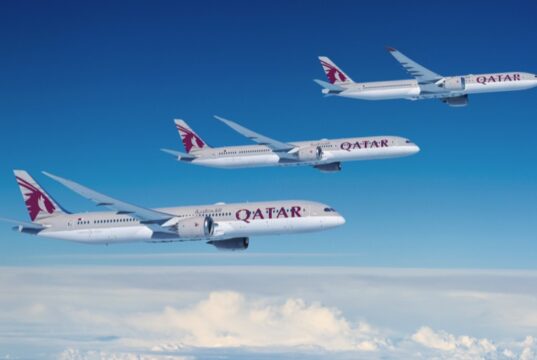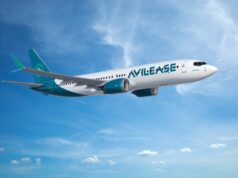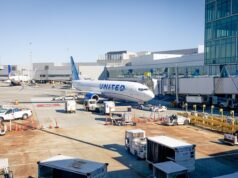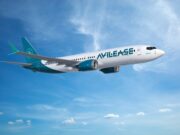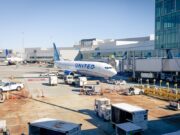JetBlue Airways Corporation (“JetBlue”) (NASDAQ: JBLU) and Spirit Airlines, Inc. (“Spirit”) (NYSE: SAVE) today announced that their boards of directors have approved a definitive merger agreement under which JetBlue will acquire Spirit for $33.50 per share in cash, including a prepayment of $2.50 per share in cash payable upon Spirit stockholders’ approval of the transaction and a ticking fee of $0.10 per month starting in January 2023 through closing, for an aggregate fully diluted equity value of $3.8 billion1 and an adjusted enterprise value of $7.6 billion2.
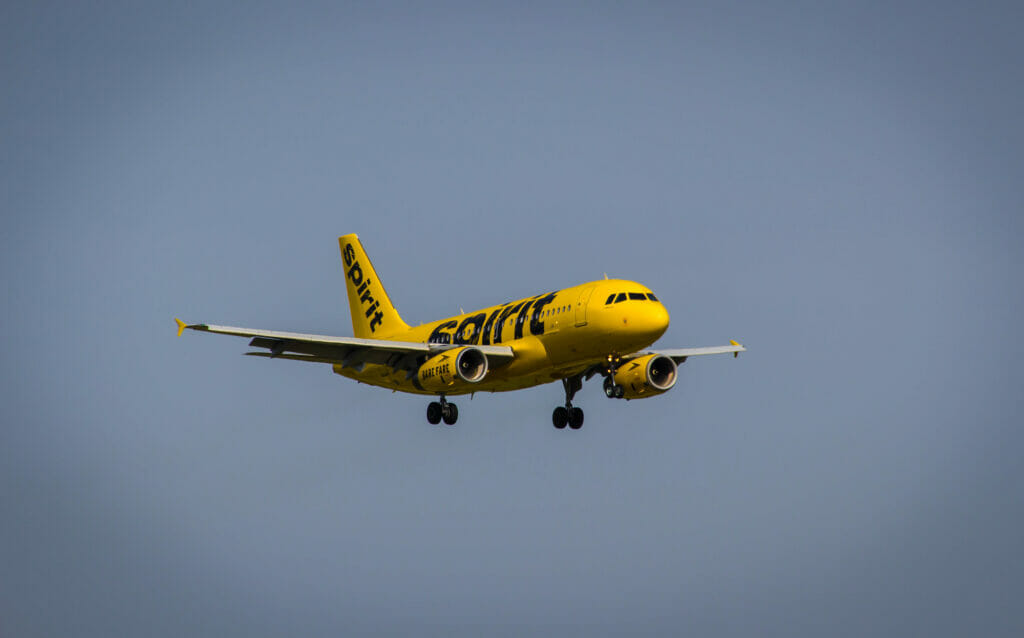
“We are excited to deliver this compelling combination that turbocharges our strategic growth, enabling JetBlue to bring our unique blend of low fares and exceptional service to more customers, on more routes,” said Robin Hayes, chief executive officer, JetBlue.“We look forward to welcoming Spirit’s outstanding Team Members to JetBlue and together creating a customer-centric, fifth-largest carrier in the United States. Spirit and JetBlue will continue to advance our shared goal of disrupting the industry to bring down fares from the Big Four airlines. This combination is an exciting opportunity to diversify and expand our network, add jobs and new possibilities for Crewmembers, and expand our platform for profitable growth.”
“Combining with Spirit will give JetBlue an even larger platform to deliver on our mission to inspire humanity,” said Peter Boneparth, chair of the board, JetBlue. “With the best Crewmembers and Team Members in the industry, our Board and leadership team look forward to building long-term sustainable value for all our stakeholders as an even stronger, more competitive low-fare airline.”
Ted Christie, president and chief executive officer, Spirit, said, “We are thrilled to unite with JetBlue through our improved agreement to create the most compelling national low-fare challenger to the dominant U.S. carriers, and we look forward to working with JetBlue to complete the transaction. Bringing our two airlines together will be a game changer, and we are confident that JetBlue will deliver opportunities for our Guests and Team Members with JetBlue’s unique blend of low fares and award-winning service. We especially appreciate the commitment of our Spirit Family throughout this process. Today’s exciting announcement reflects JetBlue’s admiration for Spirit and a shared belief in what the combined airline can bring for our Guests.”
“We are pleased that the Spirit Board of Directors’ robust and diligent process has delivered additional value to our stockholders,” said Mac Gardner, chairman of the board, Spirit. “This is a compelling combination that provides meaningful protections for stockholders against an adverse regulatory outcome with a significant cash premium that reflects the continued hard work and dedication of the Spirit Family.”
Increases JetBlue’s relevance and offers consumers more choices by leveraging the airlines’ complementary networks and fleets
- The airline will offer its combined 77 million customers more options and choices.
- JetBlue plans to bring the JetBlue Experience to all aircraft, offering JetBlue’s unique combination of low fares and award-winning service to more customers.
- The acquisition will accelerate JetBlue’s organic growth plan with 1,700+ daily flights to more than 125 destinations in 30 countries based on December 2022 schedules.
- The acquisition will increase relevance for JetBlue in certain key focus cities (Fort Lauderdale, Orlando, San Juan, and Los Angeles) as well as Big Four airline hubs (Las Vegas, Dallas, Houston, Chicago, Detroit, Atlanta, and Miami).
- The combined airline will have a fleet of 458 aircraft on a pro forma basis and an order book of over 300 Airbus aircraft with fuel-efficient, lower-carbon new engine option, or neo, engines, providing increased flexibility and efficiency while mitigating the risk of limited availability of aircraft.
Brings together the best of both airlines’ cultures and values to create job growth and career opportunities for Crewmembers and Team Members
- The combined airline will provide more career growth options, broader travel benefits, more opportunities to make a difference in the communities JetBlue and Spirit serve, and a deeper bench of intellectual capital to support the future growth of the airline.
- The mission-driven, customer-centric airline of more than 34,000 crewmembers will further job growth, including planned insourcing of Spirit’s outsourced operations in cities where JetBlue has its own Crewmembers.
- JetBlue will expand its no furlough commitment to Spirit’s Team Members as they are welcomed into JetBlue after closing.
- JetBlue will ensure a smooth transition for Spirit’s corporate Team Members by retaining a Fort Lauderdale support center, in addition to JetBlue’s other support centers.
- JetBlue is committed to working with labor leaders at both airlines and JetBlue values committee representatives to ensure the combination supports the needs of those that operate the airline.
Delivers significant value to stockholders of both airlines
- JetBlue will acquire Spirit for $33.50 to up to $34.15 per share in cash, depending on the timing of closing, including 1) an accelerated prepayment of $2.50 per share in cash, payable promptly after Spirit’s stockholders approve the transaction, and 2) a ticking fee prepayment of $0.10 per share per month between January 2023 and the consummation or termination of the transaction.
- In the event the transaction is consummated on or before December 2023, the transaction consideration will be $33.50 per share, increasing over time to up to $34.15 per share, in the event the transaction is consummated at the outside date in July 2024.
- The transaction consideration of $33.50 per share implies an aggregate fully diluted equity value of approximately $3.8 billion3 and an adjusted enterprise value of $7.6 billion4.
- JetBlue expects to achieve $600-700 million in net annual synergies once integration is complete, driven in large part by expanded customer offerings resulting from the greater breadth and depth of the combined network.
- The combined company is projected to have annual revenues of approximately $11.9 billion based on 2019 revenues. JetBlue expects the transaction to be significantly accretive to earnings per share in the first full year following closing.
- JetBlue expects to maintain balance sheet flexibility with post-transaction leverage of 3.0-3.5x, well inside historical levels, and to continue its deleveraging trajectory as it captures synergies.
Expands the reach of JetBlue’s sustainability leadership
- The all-Airbus combined fleet would include new A220s and A320neos, proven to deliver double-digit improvements in fuel and carbon emissions. After closing, JetBlue will leverage the order book for the combined company to accelerate the fleet transition to next generation, fuel-efficient aircraft.
- JetBlue expects to extend its industry-leading climate commitments to the combined airline, including its target to achieve net zero carbon emissions by 2040, which is ten years ahead of the broader U.S. airline industry’s goal.
- JetBlue would extend its goal to convert 10% of jet fuel to sustainable aviation fuel (SAF) by 2030 to the combined airline, with plans to introduce regular use of SAF into Spirit's West Coast operations after closing.
Path to regulatory approval
The completion of the acquisition is subject to customary closing conditions, including receipt of required regulatory approvals and approval of Spirit’s stockholders. The companies expect to conclude the regulatory process and close the transaction no later than the first half of 2024.
“We believe we can uniquely be a solution to the lack of competition in the U.S. airline industry and the continued dominance of the Big Four,” Hayes continued. “By enabling JetBlue to grow faster, we can go head-to-head with the legacies in more places to lower fares and improve service for everyone. Even combined with Spirit, JetBlue will still be significantly smaller than the Big Four, but we’ll be much better positioned to bring the proven JetBlue Effect to many more routes and locations.”
- The four largest carriers control more than 80% of the market. Creating a low-fare, customer-centric challenger with size and scale is the best opportunity to disrupt legacy carrier pricing in the current landscape.
- Even as the fifth-largest carrier, JetBlue, with Spirit, would have only 9% market share, compared to 13% for the fourth-largest airline and 23% for the largest carrier. After the combination and with its committed upfront divestitures, the largest seat share a combined JetBlue-Spirit will have in any of its largest metro areas is 40%, compared to the 57-91% share legacy carriers have in their largest metro areas.
- With its unique combination of everyday low fares and award-winning service, JetBlue has the best track record of disrupting legacy airlines. This has been at the heart of its approach since it first launched in 2000 with all-coach service, as it grew its much-loved brand on the East Coast and the Caribbean/Latin America, with its fresh take on transcontinental travel and premium experience with Mint, and most recently in transatlantic travel as it added flights to London.
- JetBlue’s acquisition of Spirit will give U.S. travelers the best of both worlds with a hefty boost in competition and choices as JetBlue accelerates its expansion and ultra-low-fare carriers continue to expand rapidly in number and routes.
- The Northeast Alliance (“NEA”) with American Airlines is accelerating growth of JetBlue’s low-fare service in the Northeast where Delta Air Lines and United Airlines previously had limited competition, and where JetBlue was locked out of future growth in slot-constrained and congested airports. In connection with the agreement, JetBlue has made the upfront commitment to divest Spirit’s holdings at the NEA airports to allow for allocation to other ultra-low-cost carriers.
- JetBlue has also committed to divesting Spirit assets up to a material adverse effect on the combined JetBlue-Spirit, with a limited carve-out to this divestiture obligation for actions that would be reasonably likely to materially and adversely affect the anticipated benefits under JetBlue’s NEA. In the unlikely event the proposed agreement is not consummated for antitrust reasons, JetBlue will pay (i) Spirit a reverse break-up fee of $70 million and (ii) stockholders of Spirit a reverse break-up fee of $400 million less any amounts paid to stockholders of Spirit prior to termination.
JetBlue and Spirit will continue operating independently until closing
The airlines will continue to operate independently until after the transaction closes and their respective loyalty programs remain unchanged and customer accounts will not be affected in any way.
Following completion of the acquisition, the combined airline will be based in New York and be led by Robin Hayes.
As previously announced, Spirit has terminated its prior merger agreement with Frontier. JetBlue has terminated its previously announced all-cash tender offer to acquire Spirit common stock.
Further information for customers, stockholders, employees and the communities JetBlue and Spirit serve may be found at www.LowFaresGreatService.com .

























































